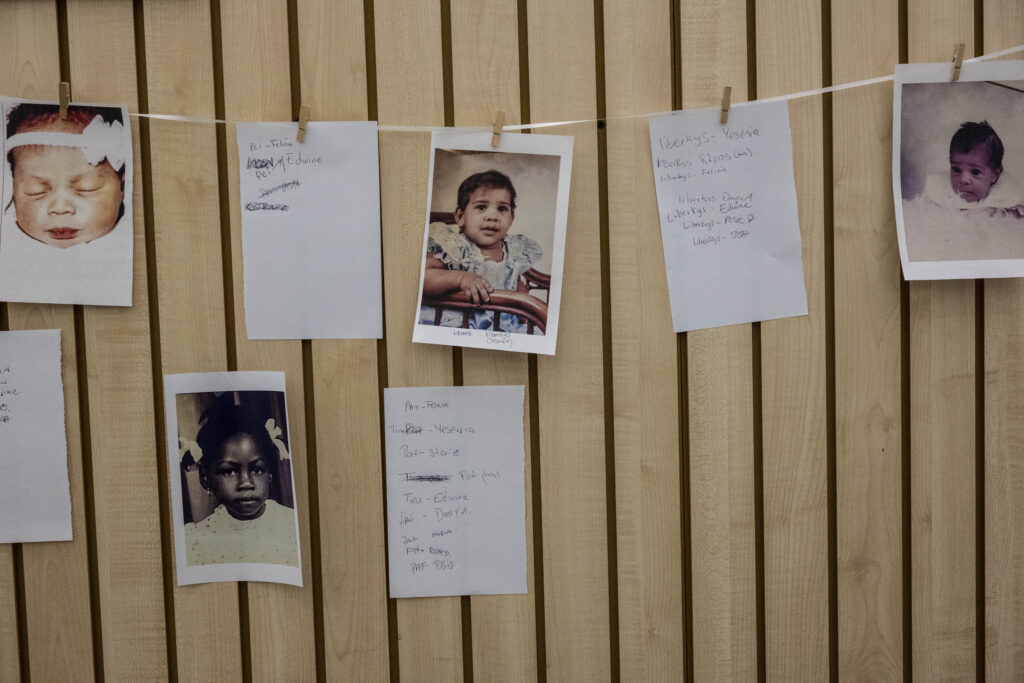NEW YORK — The Bronx auditorium was bustling with pregnant people, and Detective Fred Washington of the police department’s community affairs bureau had a promise.
“If anyone goes into labor, NYPD is here to help!” he shouted to the hundreds of people who had come from around the Bronx to the community baby shower to receive donated diapers, pacifiers, and children’s clothing. Along with the items, the showers have provided hundreds of expectant families with education on safe sleep, domestic violence, the importance of car seats, prenatal care, and more.
Community baby showers — which bring together families, health care providers, city officials, and others — are growing in popularity in New York and elsewhere across the country. Esteban Munoz, a community relations representative for Empire Blue Cross, estimates he goes to about 30 baby showers a year signing participants up for insurance — a drastic increase from the five he did in 2019.
To Munoz, they’re a valuable way to reach a community and let them know about the public resources that are available during pregnancy and after childbirth. Participants can sign up for federal programs such as WIC, which provides formula for children, and SNAP, the food stamp program. At other showers in the city, patients have a chance to relax and talk to their health care providers about birth plans and childbirth classes.

That outreach can have a tangible health impact: Research has shown community baby showers are popular among participants, and might increase awareness about infant mortality, which, along with maternal mortality, is particularly high in the Bronx.
Currently, in New York City, the maternal mortality rate for Black people is eight times the rate of non-Hispanic white people. As of 2018, nearly 40% of pregnant people in the Bronx were getting inadequate prenatal care — a higher share than the city overall. Compounding this issue, nearly 1 in 3 people in the Bronx live in poverty, making baby essentials difficult to budget for and that makes it expensive for many families.
To draw a crowd, the NYPD event’s organizers solicit donations of baby necessities from local vendors, stakeholders, and public-private partnerships. At the event, they’re distributed to participants who also can enter to win raffles for more limited items, like the pricey pack-and-play set that Tiffany Robinson won at the Bronx event in March.

“I got what I wanted,” said Robinson, who is 8 weeks pregnant. Another attendee, Yessenia Gonzales, said the event was “amazing,” especially given that she didn’t have a baby shower for herself.
Across town, earlier in the month, a church gymnasium in a quiet corner of Queens is filled with expectant families chatting in Spanish. The Catholic Charities Brooklyn and Queens community baby shower hosted 27 Spanish-speaking families — many who recently arrived in the U.S. — for a morning of education, gifts, and lunch and were sent home with strollers, clothes, and children’s books. Debbie Hampson, the senior director of community outreach services, said that while the showers are fun, it’s “more important to connect families with the services of the community.”


Back in the Bronx, raffle numbers were called out in English and Spanish, and lucky winners came up to the stage to claim their prize. Washington and his colleagues at the Community Affairs Bureau are already planning three more events this spring, and have started advertising them online, putting up fliers in store windows, and going to schools and hospitals to promote the event. He credits the success of the event to the effort of getting people out and finding vendors to attend. “Everyone knows the NYPD community baby shower is the hottest ticket in town,” he said.
Some families were given so many items they had trouble carrying them home. As families filtered out, some called taxis or dragged items down the street in laundry bags. It’s later reported that at the “hottest ticket in town,” two participants began contractions and later delivered.

This photography was supported by the International Women’s Media Foundation’s Howard G. Buffett Fund For Women Journalists.
Additional reporting was supported by the Commonwealth Foundation.


